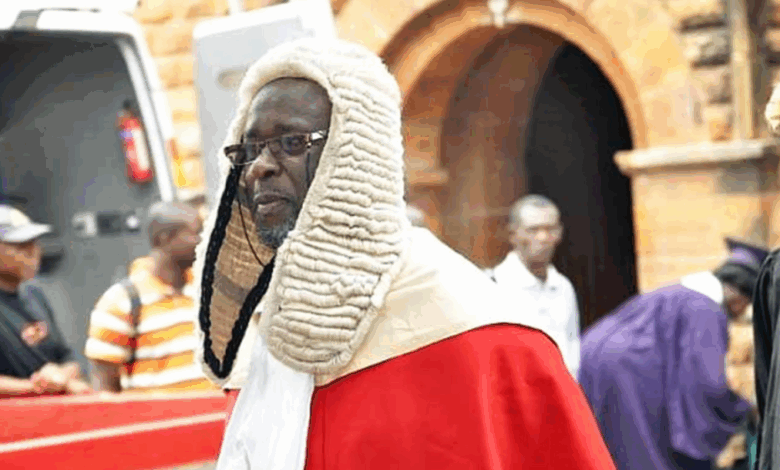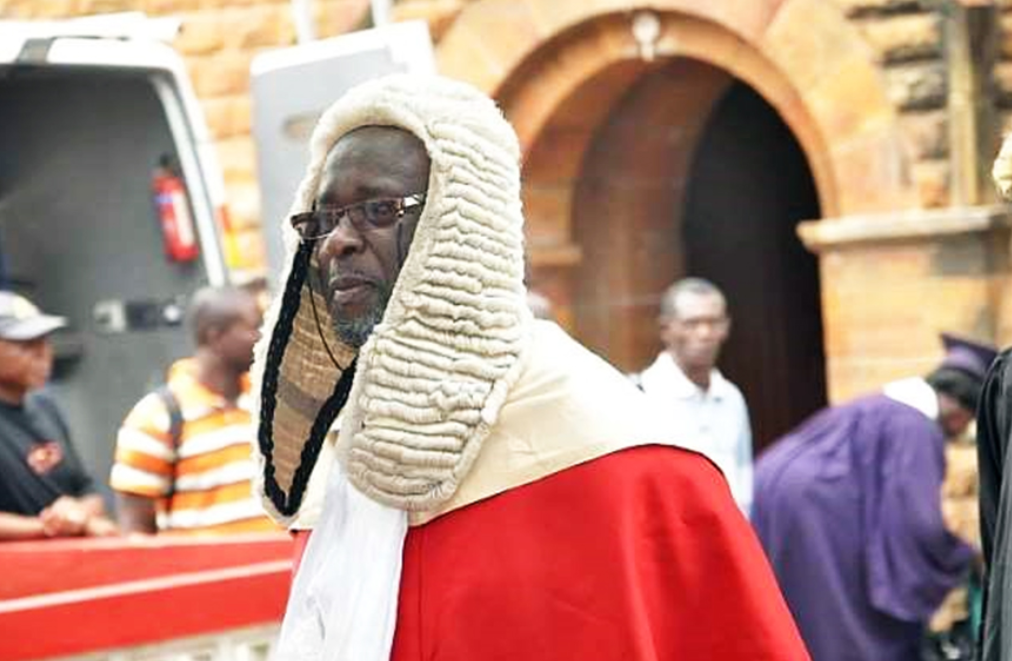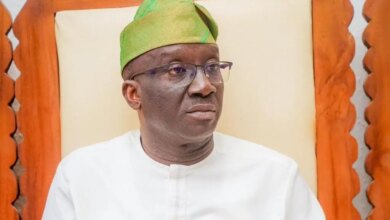Must the Vetting of Justice Baffoe-Bonnie be held hostage?


The Constitution knows no political colour; its authority flows from the people and binds all institutions alike. When Parliament hesitates to perform its clear constitutional duty on account of political expediency, it risks trespassing the bounds of legality and undermining the very system it was created to safeguard. The vetting of Justice Paul Baffoe-Bonnie should be a matter of law, not politics.
In a constitutional democracy, the independence of the judiciary is sacrosanct. It is the one institution that must remain untouched by the murky waters of partisanship. Yet, the developments surrounding the vetting of Acting Chief Justice, Justice Paul Baffoe-Bonnie, have exposed an unsettling trend, the creeping politicisation of judicial processes.
The decision by the Minority in Parliament to “keep all options open” regarding their participation in his vetting, pending the outcome of ongoing legal challenges to the removal of former Chief Justice Gertrude Torkonoo, is not only constitutionally questionable but dangerous to the sanctity of Ghana’s judicial system.
Justice Paul Baffoe-Bonnie is, by every measure, one of the most respected jurists in the country. His judicial career spans decades of integrity, scholarship, and service to the Republic. His elevation to the office of Chief Justice, following constitutional procedure under Article 144(1), cannot be faulted on any legal ground. He did not orchestrate the removal of his predecessor. He did not constitute the Justice Gabriel Scott Pwamang Committee. His only “crime,” it seems, is being nominated to serve his nation at the highest judicial office at a time of controversy not of his making.
To hold his vetting hostage to political calculations is to punish an innocent man for circumstances entirely beyond his control. It is also to undermine the clear constitutional separation of powers that defines our Republic. Parliament’s Appointments Committee has a solemn duty not to play politics, but to vet nominees on merit, competence, and character.
The framers of the 1992 Constitution envisaged a Parliament that would act in the national interest, not in partisan solidarity or vengeance.
The Minority’s argument, that there are unresolved legal issues surrounding the removal of Justice Torkonoo, may be procedurally valid in a narrow sense. However, it has no bearing on Parliament’s constitutional duty to process a valid presidential nomination. The Speaker of Parliament, Rt. Hon. Alban Bagbin, acted in full conformity with Article 144(1) by referring the nomination to the Appointments Committee. Unless and until a competent court nullifies the removal of Justice Torkonoo, the constitutional presumption of validity applies. The President’s act of nomination stands.
When some politicians cast aspersions on committees constituted under Article 146, or impugn the integrity of sitting and retired judges serving on such committees, they inadvertently erode public trust in the entire justice system. The law provides adequate mechanisms for review and redress. Justice Torkonoo has already exercised her right to challenge the process in the High Court and rightly so. That is how the rule of law works: through courts of competent jurisdiction, not political grandstanding.
If Parliament succumbs to the temptation of politicising the vetting of Justice Baffoe-Bonnie, it sets a perilous precedent. Tomorrow, any judicial appointment could be stalled simply because a political faction disapproves of timing or context. That is not accountability; that is anarchy clothed in constitutional language. Judicial independence dies not by a single blow but by the slow corrosion of confidence and this, precisely, is what such actions risk.
We cannot continue to turn every constitutional process into a partisan tug-of-war. The Judiciary is not an extension of government, nor an appendage of Parliament. It is the last bastion of constitutionalism, the institution to which both government and opposition alike must turn when disputes arise. To politicise it is to destroy the foundation of our democratic order.
Justice Paul Baffoe-Bonnie deserves to be vetted on his record, not on the politics surrounding another person’s misfortune. His career speaks for itself: decades of jurisprudential excellence, unwavering ethics, and loyalty to the rule of law. To delay or obstruct his vetting is not only unfair to him but detrimental to the administration of justice. The Judiciary cannot be left in limbo while political actors play chess with the nation’s constitutional continuity.
The Minority should rise above partisanship. Let the legal challenge of the former Chief Justice take its lawful course in court. Let Parliament, meanwhile, perform its constitutional duty. The rule of law requires nothing less.
Justice is blind, but democracy demands vigilance. If we allow political convenience to dictate the pace and direction of judicial appointments, we will one day awaken to find that our courts have lost their independence and with it, our freedom. Let us stop politicising everything before it destroys the very institutions meant to protect us all.
DISCLAIMER: The Views, Comments, Opinions, Contributions and Statements made by Readers and Contributors on this platform do not necessarily represent the views or policy of Multimedia Group Limited.
DISCLAIMER: The Views, Comments, Opinions, Contributions and Statements made by Readers and Contributors on this platform do not necessarily represent the views or policy of Multimedia Group Limited.
Source link





